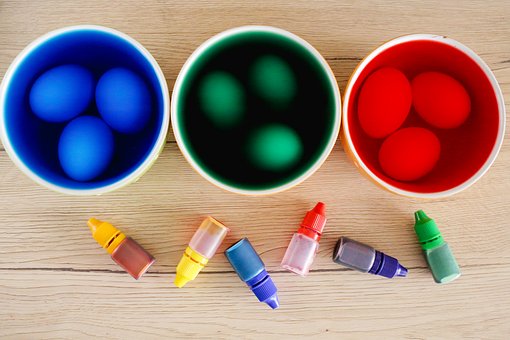Most of the processed food products that we use today contain additives and food coloring. These dyes are usually added to the products to enhance their appearance, improve their preservation, add flavor to it and make the product stand out. Most of the products we consume have the colors very different from the ones we find in natural foods. Whether it’s candy or food dyes in other edible substances, such as bread, soups, energy drinks, cold drinks, sport drinks, artificial fruit juice, powdered mixes, and other foods, we are directly exposing our bodies to it when we eat them.

Image Source : https://pixabay.com
Ever wondered where do these dyes come from? The problem is that many of these artificial food dyes are created from petroleum byproducts, which is a complete set of harmful chemicals. Previously, people were found using azo dyes in food coloring, which are basically a group of dyes used in fabric coloring. Azo dyes are proven to be a cause of cancer. Therefore, these kinds of dyes were eventually banned all around the world. However, in some places of the world, these dyes are still being used.
Apart from azo dyes, other permissible food dyes that aren’t banned have also been susceptible to a lot of controversies recently in terms of harmful health impacts. In fact, countries like Norway and Austria have permanently banned all synthetic dyes and artificial substances.
Here are some of the most common health effects of food dyes :
May cause cancer
Artificial dyes are made from petroleum products. Some of the yellow and red dyes also contain an aromatic hydrocarbon compound called benzene. This hydrocarbon is listed as the known carcinogenic substances. There are many types of research that indicate that there is a possibility of benzene causing cancer. Many places around the world have banned the use of artificial dyes that contain this substance. However, they may potentially still be in use.
Elevates estrogen levels
There are certain dyes that are known to increase the estrogen concentration in our body. While estrogen is needed by our body in certain quantities, a boost in the estrogen levels can be associated to several negatives impacts on our body, such as reduced libido, breast cancer, and many other health-related problems.
Increases Hyperactivity
There are certain dyes that are known to increase hyperactivity and elevate the risk of ADHD in our body, especially in children as they’re more susceptible and exposed to food dyes. It can affect the cognitive abilities of children and cause negative behavioral symptoms.
Dirty sources
As it has now been made quite obvious that many food dyes are derived from crude oil, which is a non-refined form of petrochemical. To cut the story short, this can in no way be a source of food or anything edible in any form. By eating processed products, we probably expose ourselves to some levels of petrochemicals through it.
Apart from these common major health problems, different dyes may be associated with many different kinds of health-related issues. Some of them are listed as under:
- Mood Swings
- Hormonal imbalance
- Irritability
- Sensitivity
- Abdominal pain
- Nasal congestion
- Lethargy
- Insomnia
- A runny nose
- Aggressiveness
- Allergies
- Indigestion
- Bad taste
- Nausea
These symptoms may vary from dye to dye, as different dyes contain different chemicals.
Conclusion
As it’s a whole lot of work to determine which dye is used in which product and what are the particular health impacts of it, the best way to go about reducing your exposure is to stop using processed foods and go as much organic as possible. Organic foods are beneficial in several other ways as well, so that’s probably a good deal. We can have multiple options while we are choosing foods that are free from dyes, such as grains, legumes vegetables, lentils, fruits, beans, meat, dry fruits, nuts, dairy, seeds, poultry, seafood, and eggs. It’s a good idea to keep it all natural when it comes to food.
Disclaimer
Please note that individual results will vary from person to person. All and any information and statements contained in this article are not intended to replace your doctor’s advice or treatment. We do not provide medical advice, prescription, or diagnose illness. Therefore, our views and nutritional statements are not intended to replace your doctor’s medical advice. If you have a health concern or condition, see your doctor before starting anything on your own.
Conclusion: Don't eat food.... :) cool article btw.....
Downvoting a post can decrease pending rewards and make it less visible. Common reasons:
Submit
What are your thoughts on "naural" food colourants that are used in products that state "no artificial colours"?
Downvoting a post can decrease pending rewards and make it less visible. Common reasons:
Submit